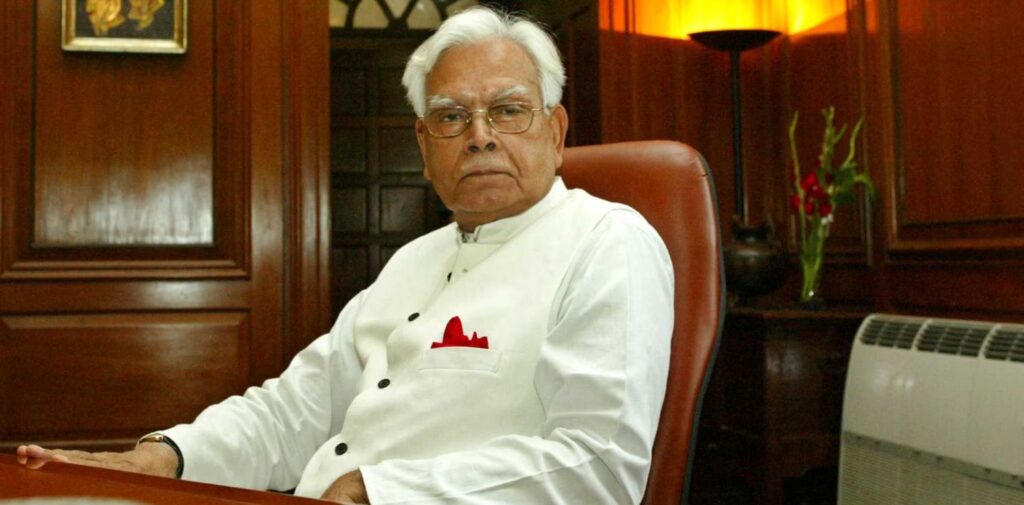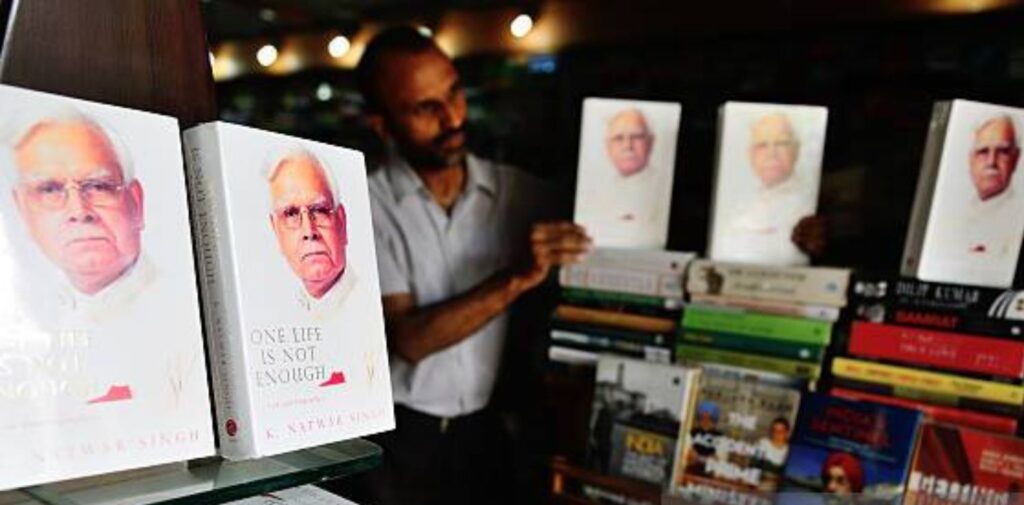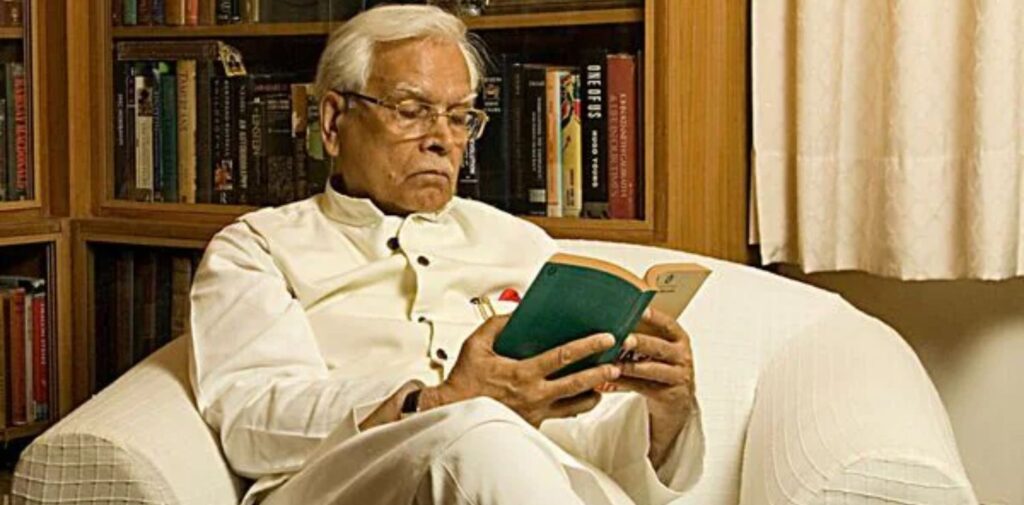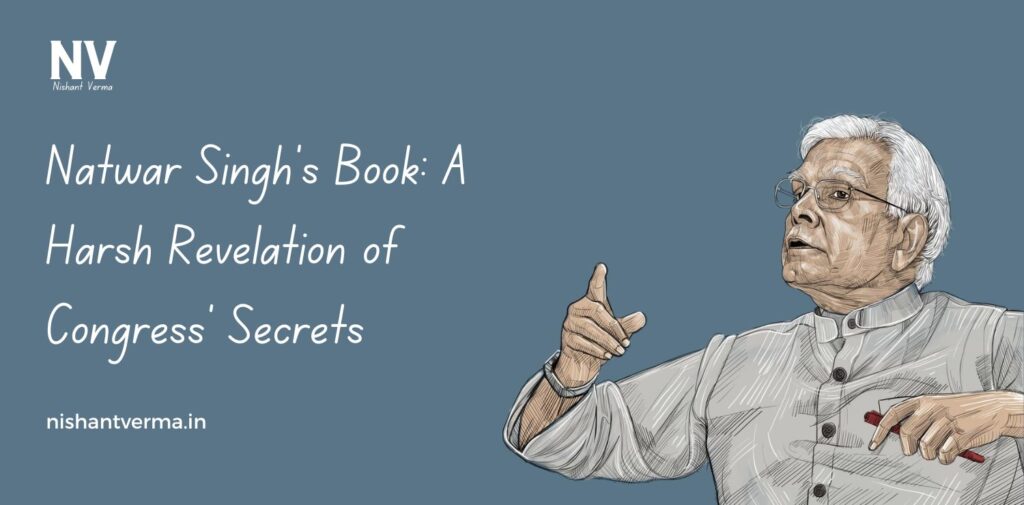In recent years, the political landscape of India has been riddled with controversies, secrets, and betrayals, especially when it comes to the Congress Party. The most shocking revelation came from an unexpected source: Natwar Singh, a former Congress leader and diplomat, whose memoirs have opened up a Pandora’s box of secrets. Natwar Singh Book, “One Life is Not Enough”, offers a devastating insider account of the Congress Party and its leadership, particularly Sonia Gandhi, and spills truths that many in the party would prefer remain hidden.

A Fall from Grace: The Story of Natwar Singh
Natwar Singh was once a prominent figure in Indian politics and diplomacy. Serving as the Minister of External Affairs under Prime Minister Manmohan Singh, he was known for his close association with the Gandhi family and his loyalty to the Congress Party. However, his political career came crashing down after his name surfaced in the infamous oil-for-food scandal in 2005. Natwar Singh was accused of being involved in a corrupt deal with the United Nations’ oil-for-food program, which led to his suspension from the Congress Party.
Despite being ousted from the party, Singh’s bitterness toward the Congress leadership, especially Sonia Gandhi, has only intensified over the years. In his memoir, Singh does not hold back in criticizing his former party and its leadership, revealing deep fractures within the Congress that were previously unknown to the public.

Natwar Singh Book: A Blow to Congress and Its Leaders
Natwar Singh memoir is more than just a political expose; it is a bitter recounting of the internal politics of the Congress Party. The book reveals several startling truths about the party’s inner workings, the role of Sonia Gandhi, and the manipulation that took place at the highest levels.
- The Role of Sonia Gandhi in Congress’ Decisions: One of the most damaging revelations in the book is the extent to which Sonia Gandhi is portrayed as the central figure in the party. Singh claims that Sonia was not just a figurehead but was deeply involved in the decision-making process, despite her claims of being an outsider to Indian politics when she first entered the political arena. He writes that Sonia’s influence over the Congress Party was far greater than anyone could have imagined, and that she ran the party like a personal fiefdom.
- Sonia Gandhi’s Manipulations: Singh goes further to accuse Sonia Gandhi of being manipulative, citing incidents where she allegedly controlled the party’s decisions to suit her personal interests. According to Singh, the Congress leadership under Sonia was not about serving the people but rather about maintaining control over the party and its political fortunes. This sentiment echoes a growing perception among many critics that the Congress Party was more concerned with protecting the family’s legacy than with addressing the needs of the Indian public.
- The Betrayal of the Gandhi Family: Singh, in his memoir, also expresses a sense of betrayal by the Gandhi family, especially Sonia. He claims that he had been a loyal servant to the Congress Party and the Gandhis, but was discarded when he became a liability to them. Singh’s personal experiences and bitterness provide a rare glimpse into the hierarchical and often ruthless politics of the Congress Party.
- Corruption Within the Party: One of the most damning allegations made in Singh’s book is the deep-rooted corruption within the Congress Party. He asserts that the party was riddled with corruption at all levels, with leaders engaging in unscrupulous activities to gain power and wealth. Singh claims that Sonia Gandhi, despite being aware of these corrupt practices, did little to clean up the party, choosing instead to protect the interests of her allies and maintain her hold on power.
- The Oil-for-Food Scandal: The oil-for-food scandal, which led to Singh’s ouster from the Congress Party, also features prominently in his memoir. Singh’s version of events is a sharp critique of the way the Congress Party handled the scandal. He contends that the party was more focused on protecting the reputation of its leaders than on addressing the corruption that took place. Singh’s account of the scandal reveals the extent to which political leaders were willing to compromise on ethics and morality to protect their own interests.
- The Downfall of Congress: Singh’s memoir paints a bleak picture of the Congress Party, suggesting that the party’s downfall began with its dependence on the Gandhi family. According to Singh, the Congress Party’s once-prominent position in Indian politics was eroded by a combination of nepotism, corruption, and a failure to adapt to the changing political landscape of India. He argues that the Congress Party’s leadership, particularly under Sonia Gandhi, was unable to inspire the youth and connect with the electorate, leading to its gradual decline.
- The Dynasty Politics of Congress: Perhaps the most scathing critique in Singh’s book is directed at the dynastic politics that have plagued the Congress Party for decades. Singh claims that the Congress Party’s dependence on the Nehru-Gandhi family for leadership has led to a stagnation in the party’s vision and growth. He suggests that the party’s refusal to look beyond the Gandhi family has stunted its development and alienated many potential leaders who could have taken the party in a new direction.
- The Power Struggles: Singh’s account also sheds light on the internal power struggles that have defined the Congress Party. He writes about the various factions within the party, each vying for power and influence, often at the expense of the party’s principles. Singh’s portrayal of these power struggles paints a picture of a party in disarray, where personal ambitions took precedence over the needs of the nation.
- The Legacy of Indira Gandhi: Singh’s book also touches upon the legacy of Indira Gandhi, the former Prime Minister and the matriarch of the Nehru-Gandhi family. While Singh acknowledges her political prowess, he also criticizes the way her legacy has been used to justify the dynastic rule of the Congress Party. He argues that the party’s blind adherence to the legacy of Indira Gandhi has led to a political culture of nepotism and authoritarianism, which has ultimately harmed the party and the country.
- Sonia Gandhi’s Leadership Style: Singh’s memoir provides an unflattering portrait of Sonia Gandhi’s leadership style. He describes her as someone who was more concerned with her personal image and political power than with the welfare of the country. Singh portrays Sonia as a leader who manipulated situations to maintain her hold on power, even at the cost of the party’s integrity.

The Aftermath of the Book’s Release
Since the release of Singh’s memoir, the Congress Party has been in damage control mode, with party leaders and spokespersons attempting to downplay the book’s claims. Sonia Gandhi, when questioned about the book, chose to remain silent, refusing to engage with the accusations made by her former ally. However, the book has already made waves in political circles, with many seeing it as a confirmation of the growing disenchantment with the Congress Party’s leadership.
Conclusion: The End of an Era?
Natwar Singh memoir is a harsh and unflinching critique of the Congress Party, exposing the deep flaws within its leadership and the way it has operated over the years. While Congress loyalists may dismiss the book as the bitter musings of a disgruntled former member, it undeniably offers a rare and revealing look into the inner workings of one of India’s oldest and most influential political parties. The revelations contained in Singh’s book may be uncomfortable truths for the Congress, but they serve as a reminder of the challenges the party faces in reinventing itself and shedding its legacy of corruption and nepotism.
In the end, Singh’s book may very well mark the end of an era for the Congress Party, as it grapples with the fallout of these revelations. Whether the party can recover from these blows remains to be seen, but one thing is clear: the Congress Party’s hold on Indian politics is weaker than ever, and the truth, as harsh as it may be, has come to light.




